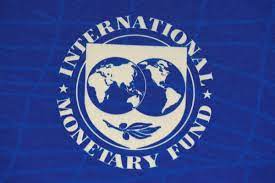News
Nigeria’s Economy May Grow To 2.5% In 2021, 2.6% In 2022, IMF Predicts

The International Monetary Fund (IMF) has maintained an unchanged economic growth rate of 2.5 per cent for 2021 and 2.6 per cent for 2022 in Nigeria.
According to a document, released, yesterday, the upgrade in 2022, depends on the expected improvements in trade and oil production.
Also, improvements in external financial conditions are expected to increase despite the bouts of volatility.
“It (forecast) is also predicated on continued improvements in external financial conditions, which have, despite some bouts of volatility recently, have actually been fairly supportive of growth, and it’s important that that continues in order for this growth forecast to pan out.
“In terms of our forecast for Nigeria this year, we have maintained an unchanged forecast of 2.5 per cent. And we have upgraded slightly for 2022, to 2.6 per cent. The reason for the unchanged forecast for this year is because it’s a product of opposing developments. We saw activity, as elsewhere, respond a lot stronger than what we had expected earlier in the year. But looking out ahead, we think that the uptick in cases in the rest of the continent is going to pose a downside risk factor and is going to drag on growth going forward.
“In terms of our upgrade for 2022, it’s related to the improvements in terms of trade. The oil production that we expect to increase going forward, will lift growth for 2022. It is also predicated on continued improvements in external financial conditions, which have, despite some bouts of volatility recently, have actually been fairly supportive of growth, and it’s important that that continues in order for this growth forecast to pan out”, the IMF said.
IMF also noted that Nigeria has always been a beneficiary of its loans and that has majorly contributed to the outlook.
“Nigeria has been a beneficiary of IMF funding. It accessed our emergency financing facilities last year, and that is also contributing to this outlook by alleviating some of the liquidity needs that the Nigerian economy has faced”, it said.
As for inflations for emerging markets and developing countries, IMF said that considering a combination of factors, including their currency weakening, it concluded that interest rates will go up and inflation would be persistent.
News
HoS Hails Fubara Over Provision of Accommodation for Permanent Secretaries

News
Allegation of Disrespect to President Tinubu Unfounded — Rivers Government

News
Rivers Government Dismisses Allegations of Disrespect to President Tinubu

-

 Politics4 days ago
Politics4 days agoPFN Rejects Call For INEC Chairman’s Removal Over Genocide Comments
-

 Rivers4 days ago
Rivers4 days agoFasthire, PHCCIMA, CIPM Host CareerFest 2026 In PH
-

 Sports4 days ago
Sports4 days agoEnekwechi wins Orlen Cup in season opener
-

 Politics4 days ago
Politics4 days agoHoodlums Disrupt LP-ADC Defection Event In Lagos
-

 Sports4 days ago
Sports4 days agoSimba open Nwabali talks
-

 Sports4 days ago
Sports4 days agoFalconets, Senegalese Lionesses arrive Ibadan for qualifier
-

 Politics4 days ago
Politics4 days agoRemoval From INEC’s Portal, Abure-Led LP Faction Mulls Legal Action
-

 Niger Delta4 days ago
Niger Delta4 days agoTinubu, Jonathan, Diri Pay Last Respect To Ewhrudjakpo

